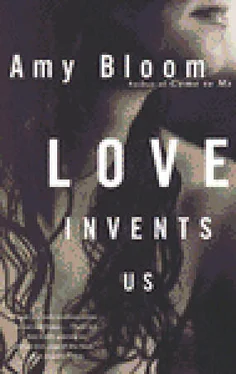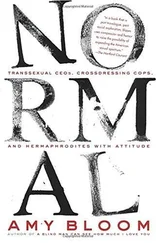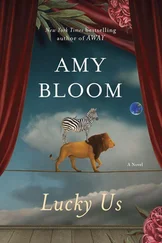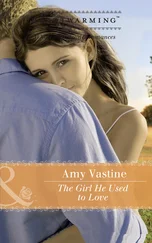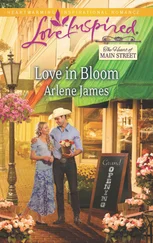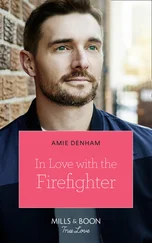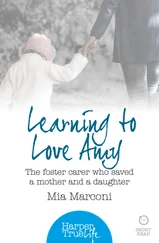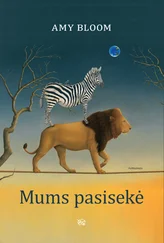Dad put me on the plane so fucking fast you wouldn’t believe it! I guess you would, you know Gus. School here lets out in early June. We’re way ahead of them and I don’t have to do any work. The team’s not bad and I’m forward. They’re all big, bigger than me, as always, but slow. These are some slow-moving country motherfuckers. Because this here is the country, girl. Which is how they all (like y’all) talk. They all think I sound funny so by the time you see me — whenever that is — I’ll probably sound like Uncle Remus .
I want to call but they’ll see it on the phone bill and I can’t call you collect, unless we set up a time. I don’t have any money. If you write a certain time that you’ll call or I should call, like Friday afternoon, between 2 and 4, before they get home, I could be here. You have to know how much I love you. Write to me Call me .
From your forever loving, H .
Burf kissed the letter for Huddie a minute before he tore it up, and he tried not to read the rest of the letters all the way through. He watched for letters from the girl, although there couldn’t possibly be any; he hoped, even as he tore Huddie’s letters into sorrowful, greasy strips, that somehow she would get them and write back. No.
Burf pictured Elizabeth Ann as a pale, pink-lidded blonde, like the little white girl who worked at the post office during holidays, until he remembered that Elizabeth was Jewish. Like Anne Frank, then, sad velvety eyes and dark hair in neat waves. When Burf’s oldest girl brought the book home, he sat down in the upstairs hallway, on his way to the bathroom, and read it through, then cried in the shower and went to work. Burf knew Gus thought the girlfriend’s being Jewish made it worse, but it didn’t seem so; life’s heartbreaks were just that, Jewish or not.
Nadine Taylor’s parents certainly hadn’t wanted her to marry his coal-blue ugly brother. Ugly, mean, poor, no people to speak of, no manners. Nadine’s people were Maryland-based, all kinds of educated freedmen whose every historically significant letter, laundry list, and poem was nicely framed in oak and hung in every one of the Taylors’ thirteen rooms; and Indians, not just high-yellow, high-cheekboned black folks, but real Weapomec Indians from Raleigh, back when black people thought that was an improvement. There had even been a French farmer and an Irish parlormaid, laying the bones for a summer house at Highland Beach where tall, barely tan men and silky-haired, long-nosed women lounged in pristine summer whites.
Augustus and Burford had only their half-mad wandering mother and their Aunt Lessie, whose sense of duty made her gather up the clothes their mother had scattered in the yard, and whose will got their mother settled down in the back room, supper on the table, and their behinds off to school the next morning for the first time in a week. Their father, handsome and sharp in his gold-framed photograph, was in the merchant marine and stayed there. Educated, beaten, washed, and brought up to respect the Lord and people who paid their bills, Gus and Burf were good boys. And still they broke their aunt’s heart and worried her sick. They loved the water. White man’s sport or not, they sailed, canoed, kayaked, and even water-skied. They snuck into the country club at night to swim in the aquamarine Olympic-size pool. They borrowed skiffs and returned them in the early morning; they crewed on big sailboats for reckless white boys with more money than sense. Gus kept three signed photographs of Esther Williams under his mattress and shook over them at night for two full years. Burf dreamed of deep-sea fishing, pulling in marlin with his feet braced against a mile of Philippine mahogany.
He fished religiously still, tying flies for his evening meditation. He showed the boy a few times, but Horace was all thumbs with the flies and bored wild, paddling his amber feet over the side like a little kid, humming radio songs.
“We don’t catch, we don’t eat,” Burf lied. The boy could see for himself that Arlene had stuffed the freezer to the top with pies and stews and foil-wrapped batches of biscuits, just in case. “This here’s dinner.”
“I don’t care. I’m not hungry,” the boy said, his lower lip curling out. Queen Nadine’s boy, all right, from his pink pouty lip to those long skinny feet and round froggy toes flipping through the still water.
Burf sighed. “I know you ain’t hungry. Your Aunt Arlene knows you ain’t hungry. All Mars knows you ain’t hungry, boy. Whyn’t you get your feet out of the water and we’ll catch something and go home. We don’t need to make a good time out of this.”
Arlene cleaned the house, getting ready for the heat and wondering about the girl. Gus was crazy to send his boy away just three months before graduation. Maybe she looked like Nadine. Gus couldn’t look on that face, even in white, with a clear conscience. Nadine Taylor had left behind a nice life for Gus. (Arlene still remembered the hand-embroidered underthings, the tennis clothes Nadine unpacked, blushing, and put in a bottom drawer.) Oh, Queen Nadine. Too good for Gus, too good to leave them all so young. And it wasn’t high hat and airs, either. It was true goodness, the goodness of her soul, and it shone right out at Arlene every day and night now, at breakfast and dinner, sitting directly across her kitchen table and sickening.
The boy went to college in late August. Burf and Arlene watched his games on TV, and Burf thought that maybe the girl would see Horace play and write to him. Write to him, Burf thought, don’t forget. Find her, Arlene thought.
Elizabeth was back for the last three months of school, sooty eyes and lank hair, but back. She wouldn’t look at Max, lurching through the halls like a wounded man. She wouldn’t meet his eyes, crusty and egg-shaped behind his glasses, and she drew in her breath when his hands came too close. He was functionally drunk every weekend and putting vodka in his orange juice at breakfast. He got himself to work, he kissed his children without exhaling, he gave a passing grade to any student whose parents would have come in to complain. He didn’t fall down, he didn’t break things, and he refused to drive with the boys for fear of killing them. Greta would not get in a car with him after four o’clock on Friday. The boys rode their bicycles into town, and Greta had begun to give Dan money for groceries. Max couldn’t do other than what he was doing, so he bought Dan a wire basket for his bike and all the comic books he wanted.
“Hey there, Elizabeth, welcome back. How’ve you been? Have you finished that paper on Edith Wharton?” Manic with despair, he sounded nothing like himself; the voice he’d used with her and hundreds of students and their parents and his own children, the sound of compassionate authority, shriveled in his throat. Rachel stood guard three feet away.
Elizabeth shook her head at Rachel, who edged a little farther down the hall and sat at the bottom of the staircase.
“I’m okay. I lost the baby.”
“I know. I’m so sorry, sweetheart. Was it awful?”
He tried to steer them toward his office, but she clung to the wall like a hostage.
“No, I lost the baby. It died. I didn’t have to have it killed.”
Max reached up, pulling handfuls of air.
“You miscarried?”
“That’s right.”
“I’m sorry.”
“Yeah, so am I. I’m sure the baby’s sorry too.”
And Max kept talking just to talk. Trying to turn what they had into a bold, star-crossed romance, love’s honorable defeat, as if the two of them had wept in each other’s lap on the floor of Mrs. Hill’s kitchen. Elizabeth said nothing. She saw his thoughts and closed her eyes. Max kissed her forehead, kissed her right through her unwashed bangs, and leaned back against the wall beside her.
Читать дальше
